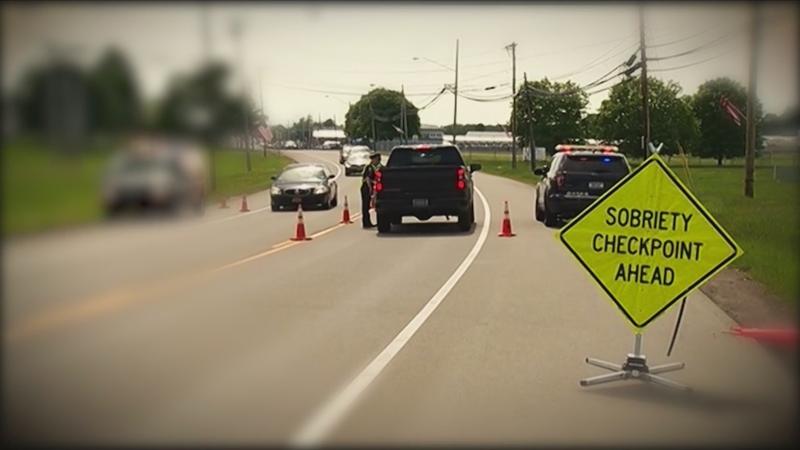Cannabis Countdown: How states handle driving while high
[anvplayer video=”5106434″ station=”998131″]
ROCHESTER, N.Y. (WHEC) — By this time next year, it’s likely adults will be able to walk into a store and legally buy marijuana products. As New York works to put its rules and regulations in place for legal sales, many people have a lot of questions about how it will work.
News10NBC Investigative Reporter Jennifer Lewke recently traveled to Massachusetts where an adult-use market has been in place since late 2018. All this week, she’ll be tackling the issues as we countdown to legal cannabis in New York, starting with driving while high.
A recent report issued by the American Public Health Association shows that from 2000 to 2018, the percentage of motor vehicle fatalities involving cannabis more than doubled from 9% to nearly 22% but that’s across all states, not just ones where marijuana is legal. Still, the numbers are concerning to those who are tasked with trying to keep the roads safe.
Whether you can buy it legally or not, there is now and probably always have been people driving high.
“It’s just much more difficult to identify and it’s much more difficult to prove that someone is now under the influence to a capability where they cannot drive their vehicle,” explained Monroe County Sheriff Todd Baxter, “It’s a very difficult law in New York to administer.”

[File video, News10NBC]
There is currently no field device for police to use to measure whether someone is too high to drive.
“Every cop in Monroe County at one time has been trained to identify a drunk driver from alcohol, there is probably less than 20 cops in all of Monroe County that are designed and created as Drug Recognition Experts,” Sheriff Baxter said.
News10NBC wanted to see how police officers are handling drugged driving in states where adults can already buy marijuana legally so we traveled to Western Massachusetts.
Jennifer Lewke (News10NBC) – Do you make a lot of arrests for driving under the influence of marijuana?
Sgt. Joe LaFrance, West Springfield, MA Police – Early on when marijuana was legalized we saw a little spike of arrests but now there seems to be more awareness by the public that the police are making arrests.
If someone is involved in a crash in Massachusetts, urine or blood samples are taken and tested but otherwise, if a person is pulled over, officers look for a few key signs.
“They seem more lethargic, slow to answer questions, you’ve got that smell of marijuana normally emanating from them as well, bloodshot, glassy eyes, speech can be slurred,” Sgt. LaFrance explained.
Like in New York, drivers in Massachusetts who refuse a breathalyzer for suspected drunk driving can have their license immediately revoked but that’s not the case for those suspected of drug driving who refuse a roadside or DRE exam. It won’t stop charges from being filed but the absence of that test makes things more challenging for prosecutors and in some areas of the commonwealth, the cases get tossed out pretty quickly.
“The threshold to prove that is so hard, the training component, the DRE’s I believe out of 500 police officers we might have 5 or 6 that are DRE experts and the courts historically haven’t gone very hard at it either,” explained Captain Brian Keenan of the Springfield, MA Police Department.
Massachusetts Governor Charlie Baker recently said that’s a loophole he’s working to close.
“Unfortunately our road safety laws have not caught up to the current public safety landscape with respect to impaired driving,” he said.
He’s proposed updated legislation that would make other changes too.
“This bill would recognize drug recognition experts under state law and allow them to testify as expert witnesses in civil and criminal cases. It would authorize courts to take judicial notice that ingesting THC can and does impair motorists and it would improve law-enforcement ability to test for the presence of drugs including a widely recognized scientifically reliable field sobriety test,” the Governor explained.
Current laws in New York State would require similar updates. A number of defense attorneys in the Finger Lakes Region say as it is, most cases are tossed here too in the absence of a blood or urine test. New York State’s Cannabis Commission and lawmakers are currently exploring specific changes that will need to be made to the penal code.
A big part of the issue is that it can be hard to predict how much marijuana will impact any given person and for how long. If you smoke a joint, vape or take a hit from a bong for example, you’ll likely feel the effects right away and it could be in and out of your system in a few hours. If take an edible, it can take up to two hours to even feel the effects and much longer than that works its way out of your system.
And unlike alcohol, there is not an established serving size.
Tuesday on News10NBC at 5 p.m., we look into what kind of impact legalization has had on the illicit market. Are there fewer illegal sales in Massachusetts now that there are 165 legal locations with a variety of products? News10NBC investigates.